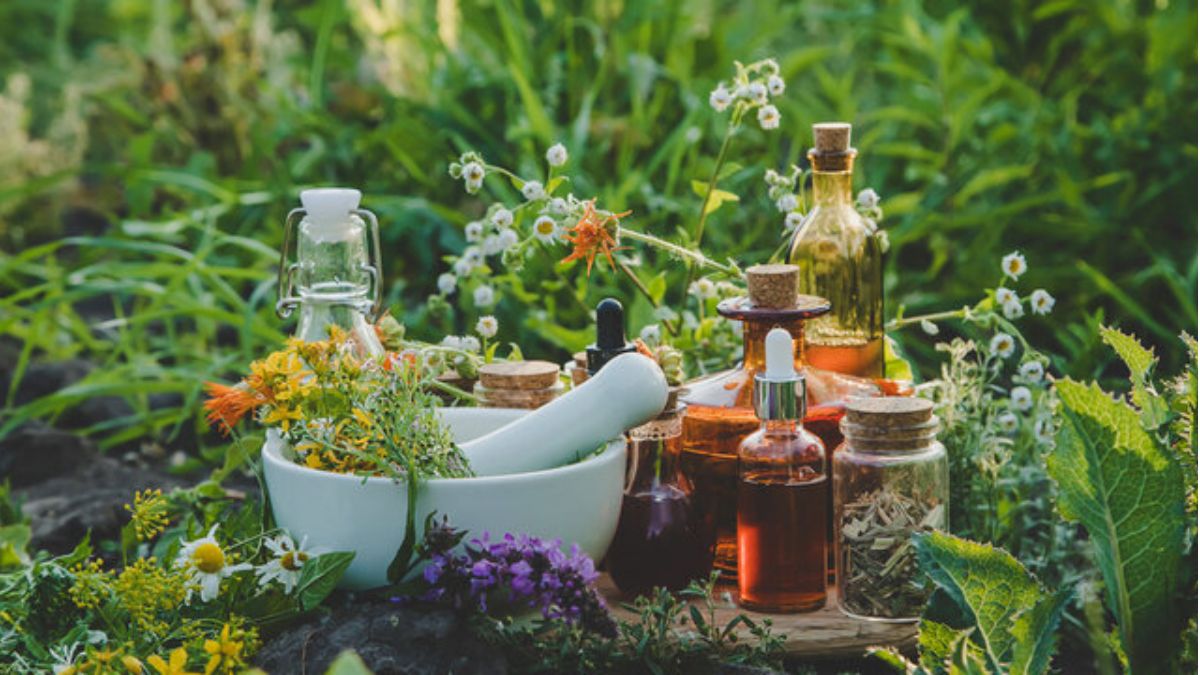 Adobe Stock
Adobe Stock
Homegrown medicinal plants offer a natural and effective way to address common ailments. These plants not only provide healing properties but also enhance the green aesthetic of your living space. Whether you have a sprawling garden or a compact balcony, here are eight medicinal plants that you can easily cultivate at home.
1. Aloe Vera: The Skin Soother
Aloe vera is a staple in natural skincare, known for its ability to soothe burns, wounds and skin irritations. Rich in antioxidants and antibacterial properties, this succulent thrives in dry conditions and requires minimal care. Simply cut open a leaf to extract its gel for topical application or use it as an ingredient in homemade skincare remedies.
2. Tulsi (Holy Basil): The Immunity Booster
A revered plant in Ayurveda, tulsi is packed with antimicrobial and anti-inflammatory properties. Its leaves help in boosting immunity, reducing stress and improving respiratory health. Brew fresh tulsi leaves into tea or chew them raw for maximum benefits. This plant grows well in tropical and subtropical climates with moderate watering.
3. Peppermint: The Digestive Aid
Peppermint is widely known for its ability to relieve indigestion, nausea and headaches. The menthol present in its leaves acts as a natural muscle relaxant and pain reliever. Grow it in a pot or garden bed with moist soil and use fresh leaves to prepare tea or add flavor to dishes.
4. Lavender: The Stress Reliever
Lavender’s calming fragrance makes it an excellent plant for stress relief and better sleep. Its essential oil is widely used in aromatherapy, while dried flowers can be used in sachets or teas. Lavender thrives in well-drained soil and full sunlight, making it a great addition to home gardens or balcony planters.
5. Ginger: The Anti-Inflammatory Wonder
Ginger is a powerhouse of medicinal benefits, known for its anti-inflammatory and digestive properties. It is particularly effective in treating colds, sore throats and nausea. This root plant can be easily grown in pots with well-drained soil and indirect sunlight. Harvest fresh ginger roots after a few months for use in teas, soups, or herbal remedies.
6. Rosemary: The Memory Enhancer
Rosemary is not only a culinary favorite but also a medicinal herb that enhances memory, concentration and circulation. Its antioxidant-rich leaves can be used in teas, oils, or herbal baths. This herb prefers warm, dry climates and needs plenty of sunlight to flourish.
7. Chamomile: The Sleep Inducer
Chamomile flowers are famous for their mild sedative properties, aiding in relaxation and improved sleep quality. Chamomile tea is commonly used to relieve anxiety and digestive discomfort. This plant grows best in cool conditions with ample sunlight and can be harvested once the flowers bloom.
8. Turmeric: The Natural Healer
Turmeric is a well-known anti-inflammatory and antioxidant-rich root, widely used in both traditional and modern medicine. It supports joint health, improves digestion and enhances skin quality. Growing turmeric at home is simple—plant rhizomes in moist, well-drained soil and harvest them after eight to ten months for fresh turmeric powder or paste.
Embrace Natural Healing at Home
Cultivating medicinal plants at home is an easy and sustainable way to incorporate natural healing into daily life. These plants not only provide health benefits but also promote a deeper connection with nature. Whether used in teas, oils, or fresh applications, they offer a chemical-free alternative to over-the-counter remedies. Start your home garden today and experience the power of natural healing firsthand.
